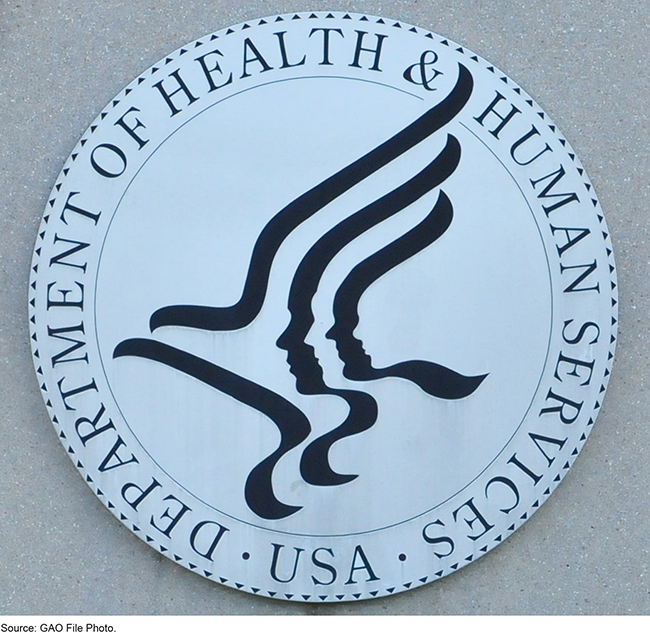COVID-19: HHS Funds Allocated to Support Disproportionately Affected Communities
Fast Facts
Some U.S. communities suffered more from COVID-19 than others. For example, Latinos, Blacks, and American Indian or Alaska Natives have been hospitalized at 2 or more times the rate of Whites. People over age 65, rural communities, and others also fared worse.
We reviewed how Health and Human Services (HHS) allocated certain pandemic relief funds to support disproportionately affected communities.
HHS provided $75 billion to 4 agencies that directed about $29 billion to support these communities. The agencies distributed another $33 billion, often to state health departments, with a recommendation to support these communities.

Highlights
What GAO Found
The Department of Health and Human Services (HHS) provided $75 billion in pandemic relief funding from its Public Health and Social Services Emergency Fund to four agencies: the Centers for Disease Control and Prevention (CDC), Health Resources and Services Administration, Indian Health Service, and Office of Minority Health. CDC received more than half of the funding. GAO found that these agencies directed $29 billion (over 35 percent) of this funding to programs specifically supporting communities disproportionately affected by COVID-19. In addition, the agencies allocated $33 billion to programs with a recommendation that awardees—often state health departments—support such communities with the funds.
HHS Agencies' Allocations of Selected Funds to Programs Supporting Communities Disproportionately Affected by COVID-19
Note: Amounts do not sum to $75 billion in pandemic relief funding due to rounding.
aHHS officials told GAO that many recipients opted to support disproportionately affected communities with these funds.
States had discretion in targeting the allocation and use of federal relief funds provided through various CDC programs. Five selected states GAO reviewed allocated selected CDC funds to support a range of COVID-19 testing, vaccination, and other response efforts in disproportionately affected communities. However, state officials reported challenges in doing so—challenges that CDC officials said many other states faced:
- Delays in state acceptance of federal funds. The health departments in three selected states waited between 3 and 9 months for the state to accept certain funds awarded by CDC.
- Capacity challenges. Consistent with findings in other GAO work, all five selected states reported hiring and workload issues, as well as challenges due to the limited capacity of local partners, which constrained their efforts to allocate and use the CDC funds.
Why GAO Did This Study
Between March 2020 and March 2021, six pandemic relief laws appropriated billions of dollars to HHS's Public Health and Social Services Emergency Fund. This fund is used for HHS emergency preparedness and response activities, including addressing the health effects felt disproportionately among certain communities.
The CARES Act includes a provision for GAO to report on its ongoing COVID-19 monitoring and oversight efforts. GAO was also asked to review how HHS allocated pandemic relief funds to support communities disproportionately affected by COVID-19. This report describes (1) how much four HHS agencies allocated to support communities disproportionately affected by COVID-19; and (2) how a sample of states allocated selected funding from CDC to support disproportionately affected communities.
GAO reviewed agency data and documentation, and interviewed agency officials from the four HHS agencies. GAO also reviewed documentation and interviewed health department officials from five states. The states—Arizona, Louisiana, Michigan, New Hampshire, and Washington—were selected to reflect variation in geography and racial and ethnic populations, among other characteristics.
HHS provided technical comments on a draft of this report, which were incorporated as appropriate.
For more information, contact Carolyn L. Yocom at (202) 512-7114 or YocomC@gao.gov.
